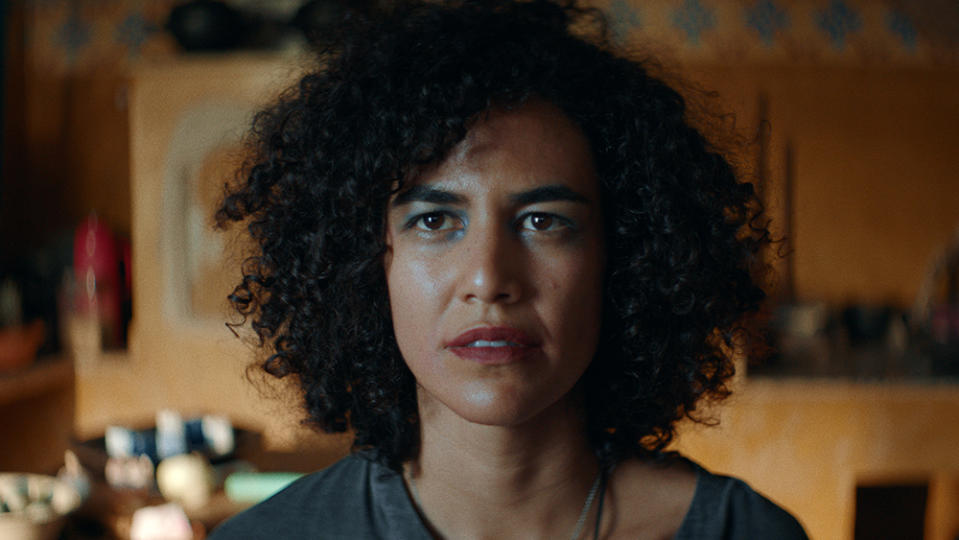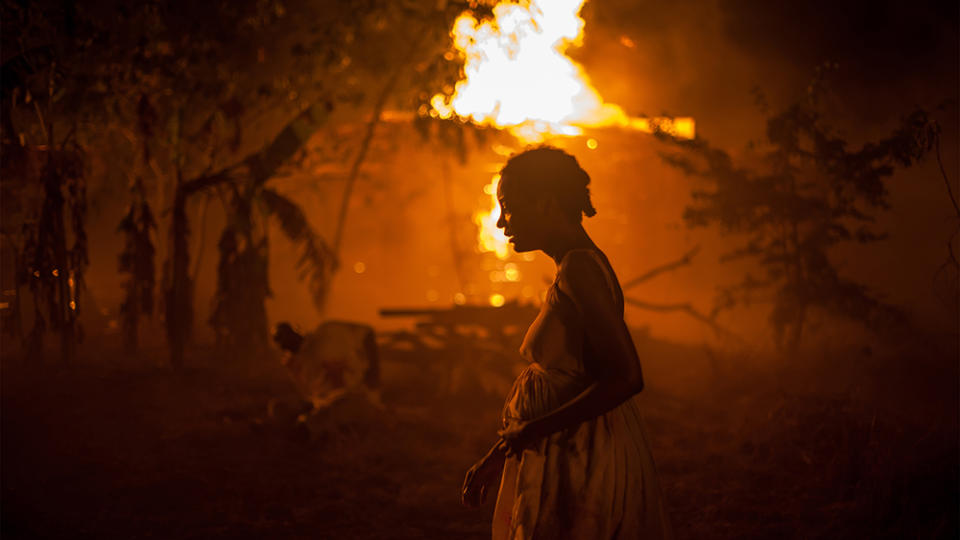Huelva, Europe’s Pioneering Ibero-American Fest, Honors Thesps Nathalie Poza, Greta Fernandez
- Oops!Something went wrong.Please try again later.
- Oops!Something went wrong.Please try again later.
- Oops!Something went wrong.Please try again later.

The 48th edition of the Huelva Ibero-American Film Festival will honor Spanish actress Nathalie Poza (“Julieta,” “Rosa’s Wedding,” “While at War”) with a City of Huelva Award, an acknowledgment whose previous recipients included filmmaker Oscar-winning director Fernando Trueba (“Belle Epoque”) and actors Dario Grandinetti, Eduard Fernández and Edward James Olmos.
Running Nov. 11-18, Huelva 2022 will also homage young thesp Greta Fernández, a best actress winner at San Sebastian for Belén Funes’ “A Thief’s Daughter,” and Andalusian writer-director Juan Miguel del Castillo (“Food and Shelter”) with two Light Awards.
Meanwhile, Seville-born director Santi Amodeo (“Doghead,” “The Gentiles”) will receive a RTVA Award for best Andalusian filmmaker.
Launched 48 years ago, Huelva represents Europe’s oldest confab dedicated exclusively to movies from Ibero-America: Spain, Latin America and Portugal, and a traditional launchpad for Latino filmmakers in Spain and Europe.
Over the years other festivals have been adding parallel sections of Latin American cinema, a symptom of its growing international relevance.
“Our programming editorial line has a remarkable Ibero-American character and authorial personality, but with a popular vocation,” explains festival director Manuel H. Martín.
A total of 130 titles make up the program for the current Huelva edition, half of them directed by women. The lineup includes 30 Spanish premieres.
Huelva’s official section will host 12 Ibero-American titles in competition, taking in shortlisted films in the Academy Awards race and standouts at key international festivals such as Locarno, Venice, Guadalajara, Berlin, Sundance and Miami.
Among them are thriller “Fogaréu,” by writer-director Flávia Neves, part of Brazil’s new wave of female filmmakers, a Bananeira Filmes and MyMama Entertainment production, which premiered in Berlin’s Panorama and is handled by Paris-based MPM Premium.

Huelva’s top competition sidebar will also host the Spanish release of Matías Rojas Valencia’s “A Place Called Dignity,” a Giancarlo Nasi co-production at Chile’s Quijote Films; “The Cow Who Sang a Song into the Future,” by Sundance’s short film jury award winner Francisca Alegría, picked up by The Match Factory; Florencia Wehbe’s “Paula,” an Italy-Argentina co-production from The Piranesi Experience and Bombilla Cine which world premiered at Bafici; and Arturo Castro Godoy’s “Rhinoceros,” produced by Argentina’s Altocine.
From Brazil, after winning Locarno’s Golden Leopard, comes Julia Murat’s provocative drama “Rule 34,” teaming Murat’s Esquina Filmes, Rio de Janeiro-based Bubbles Project and France’s Still Moving, and, from Puerto Rico, Julia Maté’s “Without Prescription,” released at Austin’s South By Southwest 2022, where it snagged the audience award.
Further contenders include Abner Benaim suspense drama “Plaza Catedral,” a Panamá-México-Colombia co-production that won best actor (Fernando Xavier de Casta) and actress (Ilse Sales) at the Guadalajara Intl. Film Festival last year; “Parsley,” the eighth feature by Dominican filmmaker José María Cabral, which world premiered at the Miami Intl. Film Festival and is sold by Visit Films; Marcelo Gomes’ “Paloma,” winner of a top prize at the Rio Intl. Film Festival; “Cesaria Evora,” a feature documentary on the late Cape Verdean singer, directed by Portuguese filmmaker Ana Sofía Fonseca and backed by WestEnd Films and Cinephil; and Fernando Guzzoni’s Venice player “Blanquita,” Chile’s Oscar international feature film submission, handled by New Europe Film Sales.

Huelva is once more hosting a Sismos Section, a format created during the pandemic, aimed at offering online viewers a selection of Ibero-American standouts, in partnership with Spain’s top indie streamer Filmin. This time, Sismos will combine in situ screening with its online programming.
“For our festival it is important to bet on the hybrid, something that we have learned from the experience of the previous two years, although always giving absolute prominence to in situ activities,” Martín says.
The selection made for Sismos this year is dominated by comedies and LGBTIQ+ issues.
Titles take in Gabriel Martins’ “Mars One,” Brazil’s Oscar submission; “Charcoal,” the feature debut of Carolina Markowicz, a Toronto and San Sebastián Horizontes Latinos hit; Mexican Claudia Sainte-Luce’s “Amor y matemáticas;” Gustavo Vinagre’s Berlinale Teddy Award winner “Tres tigres tristes,” Nicolás van Hamelryck and Clare Weiskopf’s documentary “Alis,” another Berlinale hit, and “Un varón,” the feature debut of Colombia’s Fabián Hernández, which premiered at Cannes’ Directors’ Fortnight.
The opening gala of the 48th Huelva edition screens out of competition the doc feature “Sintiéndolo mucho” a portrait of Spanish singer-songwriter Joaquín Sabina directed by “The Good Boss” helmer Fernando León de Aranoa.
The programming is completed by a short film official selection and sidebars Andalusian Talent, Huelva Screen, Cinema and Values and Special Sessions.
Overseeing the festival since 2016, Martín’s aim has been to combine Huelva’s experience and trajectory with new formats, such as a commitment to novel communication initiatives and new ways of connecting with audiences.
“We are a veteran festival, but we are aware of the need for constant renewal,” he argues.
The festival now offers year-round cinema theater programming and has activated a Profestivales21 network together with the Malaga, Seville, Valladolid and Sitges festivals.
Profestivales21, in partnership with Filmin, launches for the third consecutive year Ventana Cinéfila, to form audiences from an early age, offering a free online selection of 24 quality titles by contemporary European and Latin American auteurs that will favor an active and transversal approach to multiple subjects in the classroom.
For the current edition, Huelva has also recovered its Children and Youth Section with on-site screenings.
Further recent Huelva windows encompass TV format Encuentros, dedicated to promote audiovisual industry and film talent across the world via social networks.
An Encuentros episode will focus Nov. 15 on a conference dedicated to fostering alliances between the Andalusian and Portuguese film industries, organized by the festival in collaboration with the Huelva and the Andalusia Film Commissions.
Despite the pandemic, the festival maintained attendance figures from 2019 to 2021 – adding in-situ and online sessions – surpassing 30,000 spectators in each edition, “an especially interesting figure for a city with an estimated population of 140,000 inhabitants,” Martín says.
The festival’s foundation trustees, the Huelva City Council, Huelva Provincial Council and Andalusian regional government all support the festival, whose current budget is set at €700,000 ($700,000), almost 40% more than in 2019.

Best of Variety
Sign up for Variety’s Newsletter. For the latest news, follow us on Facebook, Twitter, and Instagram.

